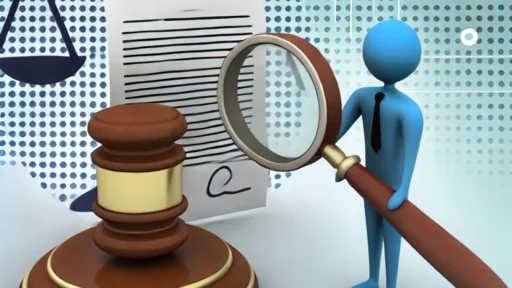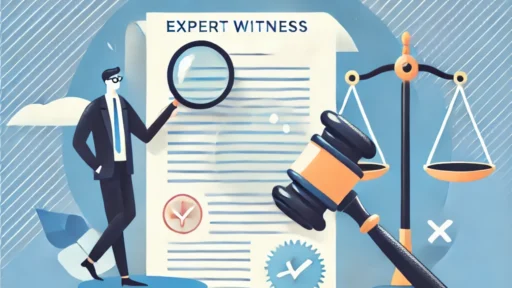In the complex world of legal proceedings, depositions play a crucial role in preserving witness testimony. These pre-trial examinations allow attorneys to gather vital information, assess the credibility of witnesses, and build a solid deposition strategy. By capturing a witness’s statements under oath, depositions ensure that their testimony remains consistent and reliable throughout the trial process.
Furthermore, what happens at a deposition is a valuable tool for determining the truth. They provide a structured environment where witnesses can provide detailed accounts of events, helping to clarify facts and resolve disputes. This process not only aids in the pursuit of justice but also helps prevent surprises during the trial, making the deposition lawsuit process more efficient and fair for all parties involved.
Understanding Depositions
Depositions, crucial in legal deposition settings, are sworn out-of-court testimonies used to gather information. Witnesses provide their accounts under oath, which are documented for future reference. These testimonies help attorney deposition understand the details of a case better.
Each deposition involves attorneys, witnesses, and court reporters. Attorneys ask deposition questions to elicit detailed responses, ensuring all relevant information is recorded. Court reporters transcribe the entire process, preserving the deposition testimony verbatim.
Depositions in litigation serve several purposes. They help clarify facts, identify key pieces of evidence collection, and pinpoint inconsistencies. By capturing witness statements early on, legal depositions ensure that memories remain accurate and intact. This recorded testimony can then be used in pre-trial motions, at trial, or for impeachment if a witness’s statements change.
Understanding the significance of depositions underscores their role in preserving accurate witness testimony and strengthening legal strategies.
Legal Framework of Depositions
A thorough understanding of the legal framework governing depositions is crucial to preserving witness testimony. The deposition rules vary between federal and state levels, shaping how depositions are conducted and utilized.
Federal Rules of Civil Procedure
The Federal Rules of Civil Procedure (FRCP) establish guidelines for depositions in federal cases. Rule 30 governs oral depositions, specifying who can be deposed, how notices are served, and the conduct of depositions.
Rule 31 addresses depositions by written questions, detailing the procedures for submitting questions and recording responses. Together, these rules ensure that depositions are conducted fairly and efficiently across federal courts.
State Laws and Regulations
State laws and regulations dictating depositions differ significantly, affecting how these testimonies are preserved. Many states model their rules after the FRCP but include unique stipulations.
For instance, California’s Code of Civil Procedure Section 2025 outlines detailed steps for conducting depositions, including notice requirements and recording methods. Practitioners must familiarize themselves with local regulations to ensure compliance and effectively preserve witness testimony.
Preparing for a Deposition
Effective deposition preparation is crucial for a successful deposition. It sets the stage for obtaining reliable, accurate witness testimonies.
Identifying Key Witnesses
Attorneys begin by identifying key witness management likely to provide relevant information. They evaluate individuals involved in or knowledgeable about the events in question. Legal teams consider each witness’s perspective, involvement, and potential impact on the case. They prioritize witnesses based on the strength and necessity of their testimony.
Crafting Effective Questions
Developing effective questions is pivotal. Attorneys focus on clarity and relevance, structuring open-ended and specific questions to elicit comprehensive responses. They ensure questions cover all necessary aspects, verify facts, and explore inconsistencies. Practice sessions help refine questioning techniques, preparing attorneys to handle unexpected answers and follow-up inquiries.
The Role of Depositions in Preserving Testimony
Deposition objections play a pivotal role in preserving witness testimony by ensuring every statement is documented accurately and thoroughly. They help maintain a reliable and accountable record that can be referred to throughout the legal process.
Ensuring Accuracy and Accountability
Depositions record witnesses’ statements under oath, ensuring accuracy. Attorneys, often alongside a confidentiality lawyer, can cross-examine witnesses to clarify facts and protect sensitive information, making it harder for witnesses to change their testimony later. Court reporters transcribe testimonies verbatim, creating a precise and reliable record. By doing so, depositions hold witnesses accountable, minimizing discrepancies and falsehoods while maintaining the confidentiality of the proceedings.
Preventing Memory Loss Over Time
Witnesses may forget key details over time due to the natural decline of memory or external influences. By conducting depositions, attorneys capture testimonies while details are still fresh in the witnesses’ minds. Adhering to the ethics of a lawyer, this approach ensures that important information remains intact and unaltered. Preserved depositions provide a consistent reference, reducing the impact of fading memories on the integrity of testimonies and upholding ethical standards in legal practice.
Best Practices for Attorneys
Attorneys should thoroughly prepare by reviewing case details and understanding the witness’s background, ensuring relevant and precise questions during a deposition with a lawyer. Using open-ended questions helps elicit detailed responses and clarify ambiguous points. Maintaining a respectful and professional demeanor in a deposition with a lawyer encourages honest and complete testimony.
Recording depositions accurately through court reporters or digital means preserves the integrity of the testimony. Coordination between legal teams guarantees all critical topics are covered comprehensively.
Common Pitfalls to Avoid
Avoid leading questions that suggest answers and testimony deposition compromise the witness’s independent expert testimony. Overlooking non-verbal cues may result in missed contextual information crucial to the case. Disjointed questioning can confuse witnesses and lead to incomplete or inaccurate responses.
Rushing through the deposition undermines the thoroughness and quality of testimony preservation. Failing to prepare adequately risks overlooking vital details, jeopardizing the legal strategy.
Technological Advances in Depositions
Technological advances have revolutionized how deposition advice is conducted, improving efficiency and accessibility. These innovations enhance the legal process by preserving witness testimony more effectively.
Remote Depositions
Remote depositions leverage video conferencing platforms to connect participants from various locations. This setup reduces travel costs and scheduling conflicts. Platforms like Zoom and WebEx enable attorneys, witnesses, and court reporters to participate in depositions seamlessly.
Remote depositions also allow for immediate document sharing, ensuring all parties view the same materials in real-time. However, In-Person Depositions offer the advantage of observing non-verbal cues and interactions that can be crucial in assessing witness credibility and reactions, adding another layer of depth to the legal proceedings.
Video Recording and Transcription
Video recording captures the visual and verbal nuances of the deposition, providing a comprehensive record. This method aids in reviewing witness demeanor and non-verbal cues, which are often critical in legal strategies. High-definition cameras and reliable storage solutions ensure that video records are clear and accessible.
Deposition transcription technology uses advanced tools like speech recognition software to produce accurate written records. This technology accelerates the transcription process and reduces human error. Real-time transcription services display the text concurrently with the deposition, allowing attorneys to make immediate notes and adjustments.
These technological advances streamline the deposition process, making it more efficient and precise.
Preserve Witness Testimony with BlueNotary’s Cutting-Edge Notarization Services
Depositions play a crucial role in preserving witness testimony and ensuring the integrity of legal proceedings. With advancements in technology, the process has become more efficient and precise, allowing for better assessment of witness credibility.
BlueNotary offers a secure and efficient online notarization platform, guaranteeing that all your deposition documents are authenticated and legally binding.
Enhance your legal process with trusted notarization solutions. Register today to streamline your notarization needs and secure the integrity of your witness testimony. BlueNotary: Your partner in leveraging key techniques and innovations for effective depositions!
Frequently Asked Questions About Witness Testimony and Depositions
Q1. Why are depositions important for preserving witness testimony?
Depositions are essential for capturing detailed and accurate witness testimony under oath, which can be used in court if the witness is unavailable or their memory fades over time.
Q2. What are key techniques for effective deposition testimony preservation?
Effective techniques include thorough preparation, asking clear and concise questions, using video recordings, ensuring the presence of a court reporter, and reviewing the testimony for accuracy.
Q3. How do video depositions enhance the preservation of witness testimony?
Video depositions capture not only the spoken words but also the witness’s demeanor, expressions, and body language, providing a more comprehensive record that can be more impactful in court.
Q4. What innovations are improving the deposition process?
Innovations such as real-time transcription software, secure cloud storage for deposition records, remote video deposition objection, and advanced video and audio recording technologies are enhancing the accuracy and accessibility of deposition testimony.
Q5. How can attorneys ensure the reliability of deposition testimony?
Attorneys can ensure reliability by preparing witnesses thoroughly, conducting mock depositions, cross-referencing testimony with documented evidence, and utilizing professional court reporters and videographers.








